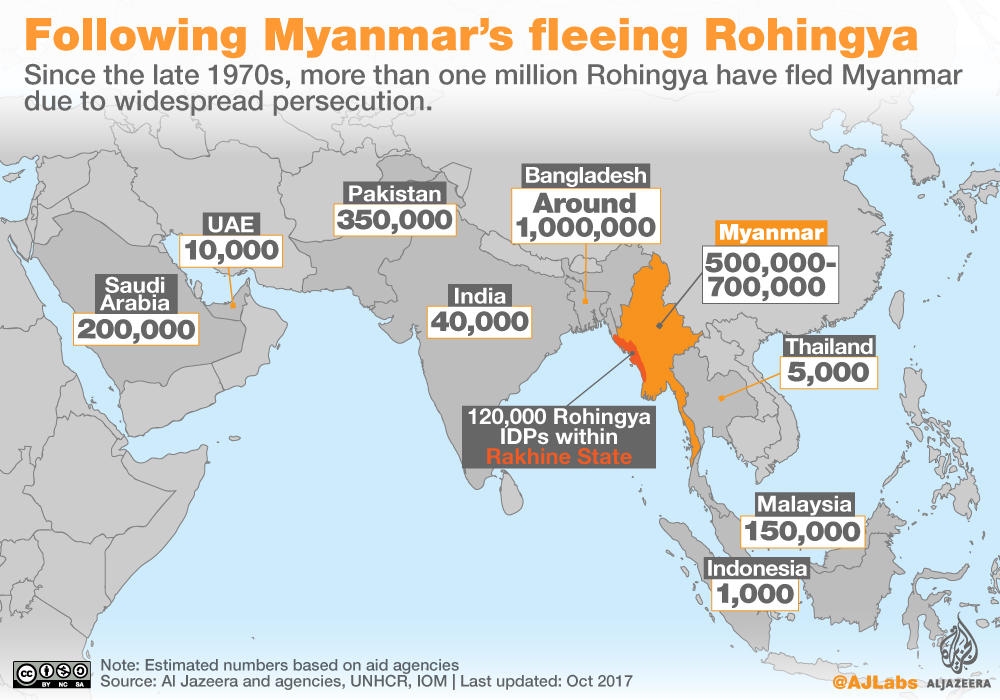Myanmar: Aung San Suu Kyi defends policies towards Rohingya
Suu Kyi refuses to give a timeline on the repatriation of 700,000 Rohingya, saying it depends on Bangladesh.

Myanmar leader Aung San Suu Kyi has defended her government’s actions in Rakhine state which have forced more than 700,000 Muslim-majority Rohingya to flee their homes and seek refuge in neighbouring Bangladesh.
Speaking at a lecture in Singapore in which she reviewed her first two years in power, Aung San Suu Kyi refused to recognise the atrocities committed by the Myanmar military and instead justified her government’s campaign against the beleaguered Muslim community.
Keep reading
list of 4 itemsConflict, climate, corruption drive Southeast Asia people trafficking: UN
Bodies of three Rohingya found as Indonesia ends rescue for capsized boat
How is renewed violence in Myanmar affecting the Rohingya?
“We, who are living through the transition in Myanmar, view it differently than those who observe it from the outside and who will remain untouched by its outcome,” she said, in an apparent response to criticism of how her government has handled the plight of the Rohingya.
The UN has described the Myanmar military’s campaign in Rakhine as “textbook ethnic cleansing“, and journalists and human rights groups who have reported from the region have documented widespread rape, killing, and destruction of homes by government troops.
Despite this, the Nobel Peace Prize laureate has refused to condemn the violence and even refuses to refer to the ethnic group by its name.
Many Buddhists in Myanmar believe that the Rohingya are Bengalis who migrated to the country illegally during the British rule in the subcontinent, and have rejected their claims that their roots in the region that go back centuries.
Since 2012, incidents of religious intolerance and incitement against Muslims have increased across the country, with the Rohingya frequently attacked and portrayed as a “threat to race and religion”.
No timeline for return
|
|
Speaking on Tuesday, Aung San Suu Kyi also said it was difficult to say when the Rohingya would be able to return, and appeared to cast blame on Bangladesh for the delay.
“It’s very difficult for us to put a timeframe on it by ourselves unilaterally, because we have to work with Bangladesh in order to do that”.
Myanmar’s government has signed several agreements on preparing for the return of the Rohingya, but UN agencies have accused it of dragging its feet, and human rights groups are concerned that the safety of returning Rohingya cannot be assured.
The UN, which hasn’t been granted access to Rakhine since August 2017, fears the returning refugees won’t be given freedom of movement if they return.
Knut Ostby, a UN resident and humanitarian coordinator in Myanmar, said the repatriation agreement had been beset by repeated delays and authorities had yet to allow them access to the region.
